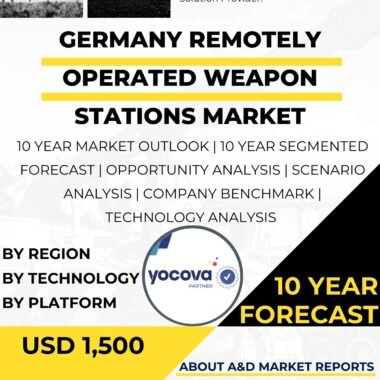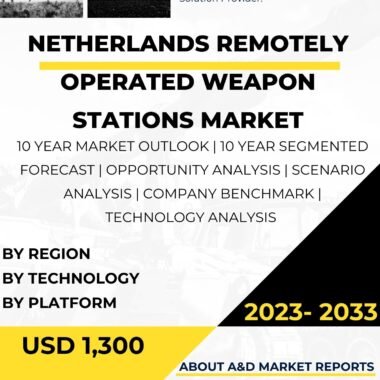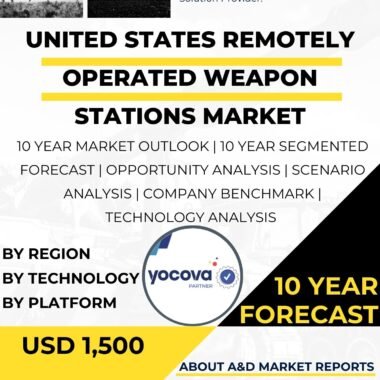Description
The Belgium remotely operated weapon stations (ROWS) market is a crucial segment within the country’s defense industry. Remotely operated weapon stations are advanced systems that enable operators to remotely control and operate weapons from a protected position, enhancing the safety of personnel and increasing the effectiveness of firepower. Belgium recognizes the importance of ROWS in modern warfare, providing enhanced situational awareness, precise targeting, and improved operational capabilities.
The primary driver for the Belgium ROWS market is the need for advanced weapon systems that can be remotely operated and integrated onto various military platforms. ROWS offer significant advantages over traditional manned weapon systems, as they allow operators to engage targets from a safer distance while maintaining a high level of accuracy and reducing the risk to personnel. Belgium’s focus on ROWS is driven by the need to enhance its defense capabilities, protect national interests, and maintain operational superiority.
Belgium’s domestic defense industry plays a significant role in the development, production, and integration of ROWS. Belgian companies, such as CMI Defence and FN Herstal, have expertise in manufacturing weapon systems and contribute to the country’s defense capabilities. These domestic capabilities foster innovation, create job opportunities, and contribute to the economic growth of the Belgium ROWS market.
Collaborations with international partners and suppliers are also significant for the Belgium ROWS market. Belgium often engages in partnerships with defense companies from NATO member states and other allied nations to access advanced ROWS technologies, benefit from joint development programs, and ensure interoperability with allied forces. These collaborations enable Belgium to leverage global advancements in ROWS systems, enhancing its defense capabilities and strengthening collective defense.
Furthermore, Belgium’s participation in multinational defense initiatives influences the ROWS market. Collaboration within NATO and other international defense cooperation programs fosters interoperability, joint training exercises, and the exchange of best practices. This cooperation ensures compatibility and enhances operational effectiveness when conducting joint military operations with allied forces.
The Belgium ROWS market faces challenges such as technological advancements, platform integration, and cost-effectiveness. Technological advancements in ROWS systems, including improved targeting capabilities, advanced stabilization mechanisms, and enhanced communication interfaces, require continuous research and development efforts. The Belgium market needs to stay at the forefront of innovation to provide state-of-the-art ROWS systems that meet evolving defense requirements.
Platform integration is a crucial consideration in ROWS systems. Belgium’s defense industry must ensure that its ROWS can be seamlessly integrated onto various military platforms, including armored vehicles, naval vessels, and unmanned aerial systems. Compatibility, adaptability, and ease of installation are essential characteristics for ROWS systems to effectively fulfill their missions.
Cost-effectiveness is an important consideration in the acquisition and maintenance of ROWS systems. Belgium’s defense industry must carefully manage defense budgets and allocate resources prudently. The cost of developing, producing, and maintaining ROWS systems should be balanced against the need for advanced capabilities, ensuring a cost-effective approach without compromising operational effectiveness.
In conclusion, the Belgium remotely operated weapon stations market is a crucial segment within the country’s defense industry. Advanced ROWS systems provide critical capabilities for remote operation of weapons, enhancing safety, accuracy, and operational effectiveness. Domestic capabilities, collaborations with international partners, and Belgium’s participation in international defense initiatives drive the growth and development of the ROWS market. As defense requirements evolve and technological advancements continue, the demand for advanced and integrated ROWS systems is expected to increase, fostering innovation, collaboration, and economic growth within the sector.




